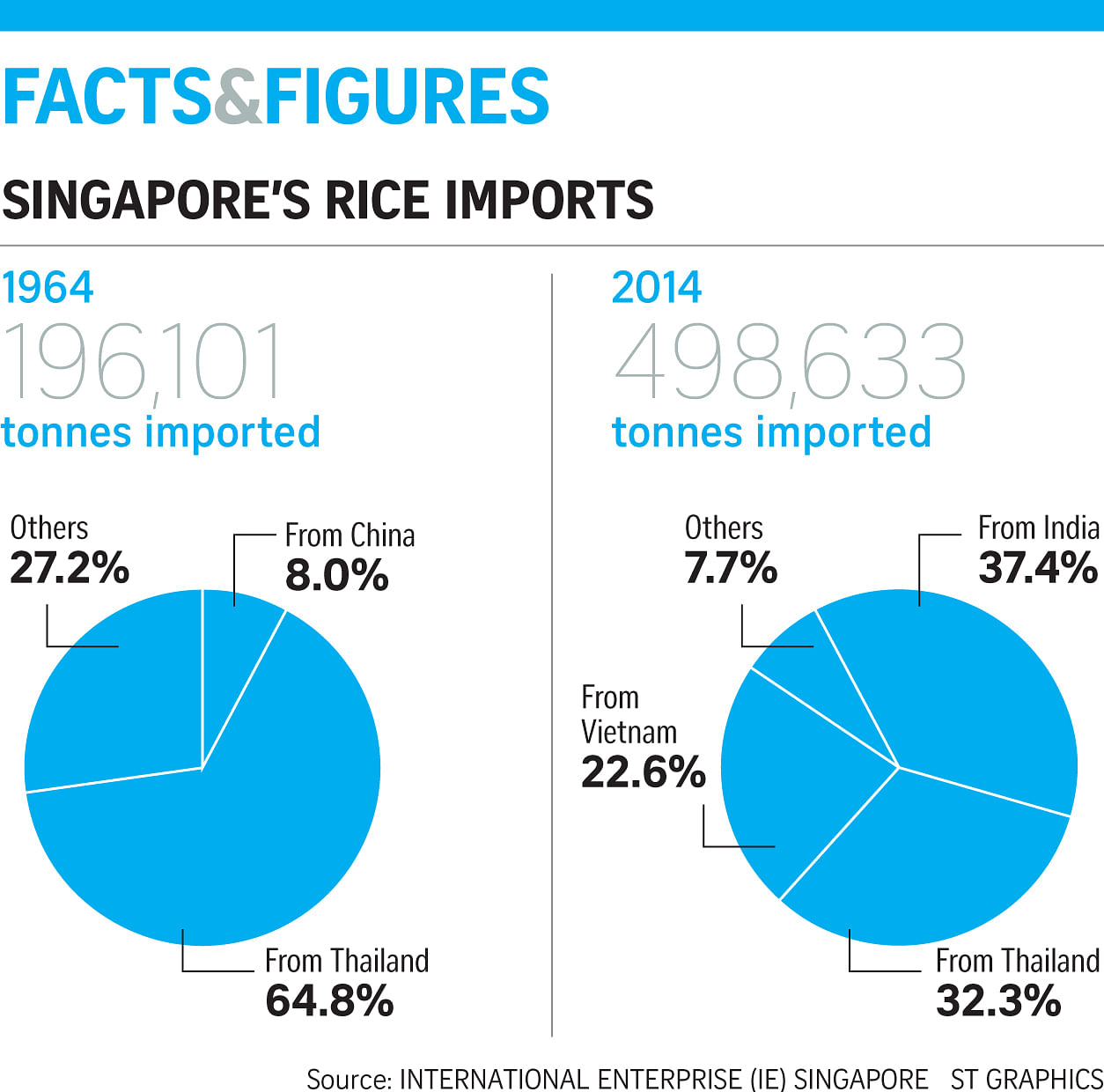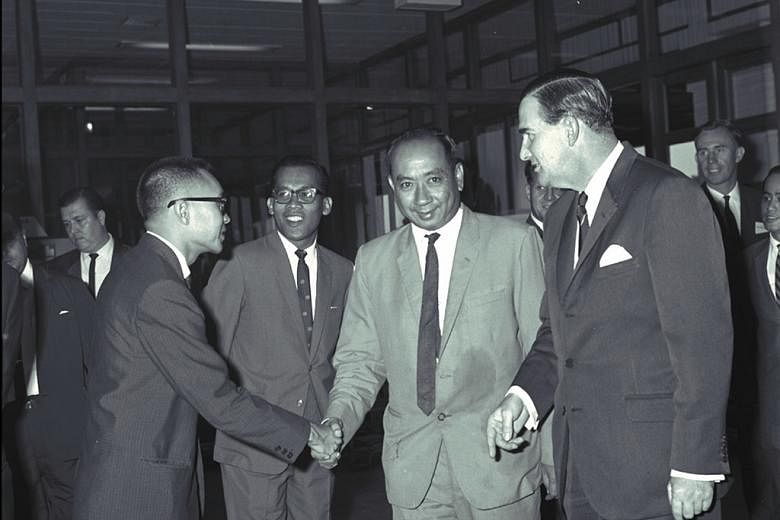An already tense relationship between Malaysia's central government in Kuala Lumpur and the Singapore state government worsened this week in 1965, with their finance ministers disagreeing openly.
Malaysian Finance Minister Tan Siew Sin proposed raising Singapore's contribution to Kuala Lumpur from 40 per cent of its revenue to 60 per cent.
Under the Malaysia Agreement that was signed in July 1963, Singapore would contribute 40 per cent of its revenue to the federal government, and a common market would be set up over 12 years.
Singapore would also provide a $150 million development loan to Sabah and Sarawak, two-thirds of which would be interest-free for five years.

Mr Tan said Singapore had not yet started making the loan it had promised to the Borneo states.
Singapore's Finance Minister, Dr Goh Keng Swee, firmly refused Mr Tan's 60 per cent formula, saying the rates were not equitable.
"The Singapore Government's estimate is that 30 per cent is more than adequate to meet our obligations under the Constitution," said Dr Goh.
He said there was nothing in the central government's accounts of expenditure for which Singapore might be called upon to make an increased contribution.
"On the contrary, there has been a substantial overpayment of about 10 per cent of the agreed 40 per cent by the Singapore Government," he said.
Dr Goh added that Mr Tan's comments contained a "clumsy hint" that unless Singapore agreed to pay more, the common market would be slow in coming about.
He also said that the hold-up in the loan to Sabah and Sarawak was because the Borneo states had not yet agreed to a basic condition of the loan - that 50 per cent of the labour for development projects financed by the loan would come from Singapore.
He accused Kuala Lumpur of being unfair to Singapore industries by imposing tariffs on Singapore- made products imported into the Malaysian mainland.
Mr Tan hit back, saying Dr Goh was creating a "misleading impression" of the central government's views. Dr Goh countered by suggesting that Mr Tan was "wrong on facts". Mr Tan then said further discussion would be futile as the two governments were not going to reach an agreement.
He called for the matter to be referred to an arbitrator, and Singapore agreed to refer the issue to the World Bank for arbitration on July 22.
Singapore Prime Minister Lee Kuan Yew accused Mr Tan of stirring up the revenue issue because of the "Malaysian Malaysia" campaign advocated by Singapore's ruling People's Action Party. He added that the central government could not hope to solve Malaysia's social problems by demanding more taxes from Singapore.
He said: "If Singapore does not benefit economically from Malaysia, and if the common market is not set up as laid down in the Malaysia Agreement, then Malaysia is meaningless."

